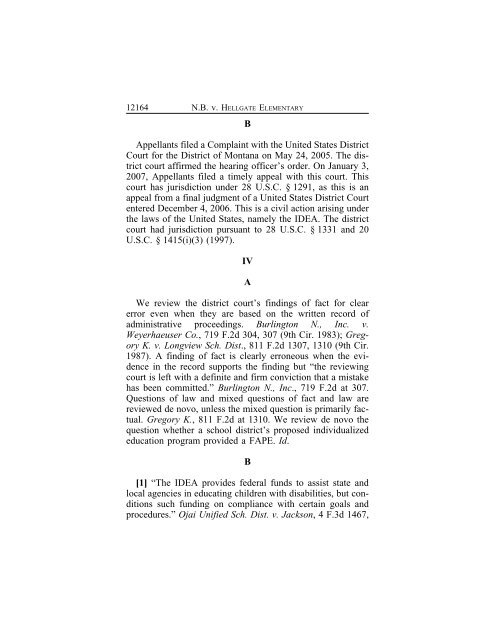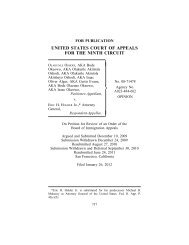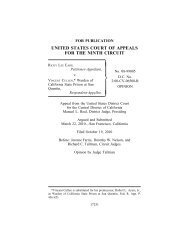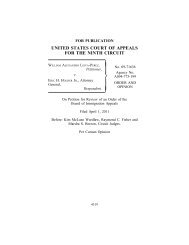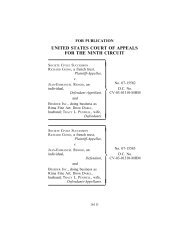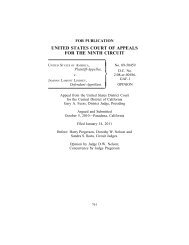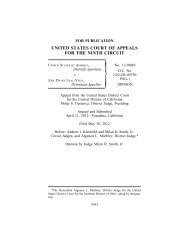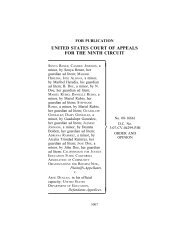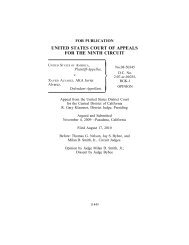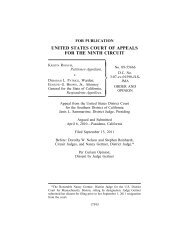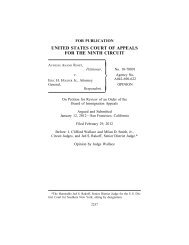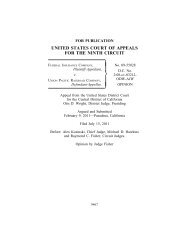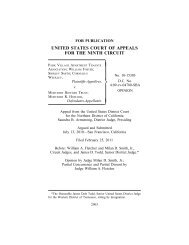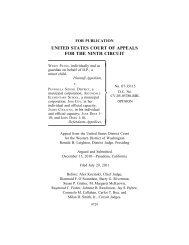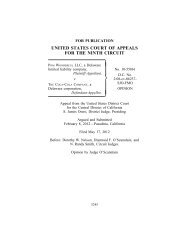n.b. v. hellgate elementary - Ninth Circuit Court of Appeals
n.b. v. hellgate elementary - Ninth Circuit Court of Appeals
n.b. v. hellgate elementary - Ninth Circuit Court of Appeals
Create successful ePaper yourself
Turn your PDF publications into a flip-book with our unique Google optimized e-Paper software.
12164 N.B. v. HELLGATE ELEMENTARY<br />
B<br />
Appellants filed a Complaint with the United States District<br />
<strong>Court</strong> for the District <strong>of</strong> Montana on May 24, 2005. The district<br />
court affirmed the hearing <strong>of</strong>ficer’s order. On January 3,<br />
2007, Appellants filed a timely appeal with this court. This<br />
court has jurisdiction under 28 U.S.C. § 1291, as this is an<br />
appeal from a final judgment <strong>of</strong> a United States District <strong>Court</strong><br />
entered December 4, 2006. This is a civil action arising under<br />
the laws <strong>of</strong> the United States, namely the IDEA. The district<br />
court had jurisdiction pursuant to 28 U.S.C. § 1331 and 20<br />
U.S.C. § 1415(i)(3) (1997).<br />
IV<br />
A<br />
We review the district court’s findings <strong>of</strong> fact for clear<br />
error even when they are based on the written record <strong>of</strong><br />
administrative proceedings. Burlington N., Inc. v.<br />
Weyerhaeuser Co., 719 F.2d 304, 307 (9th Cir. 1983); Gregory<br />
K. v. Longview Sch. Dist., 811 F.2d 1307, 1310 (9th Cir.<br />
1987). A finding <strong>of</strong> fact is clearly erroneous when the evidence<br />
in the record supports the finding but “the reviewing<br />
court is left with a definite and firm conviction that a mistake<br />
has been committed.” Burlington N., Inc., 719 F.2d at 307.<br />
Questions <strong>of</strong> law and mixed questions <strong>of</strong> fact and law are<br />
reviewed de novo, unless the mixed question is primarily factual.<br />
Gregory K., 811 F.2d at 1310. We review de novo the<br />
question whether a school district’s proposed individualized<br />
education program provided a FAPE. Id.<br />
B<br />
[1] “The IDEA provides federal funds to assist state and<br />
local agencies in educating children with disabilities, but conditions<br />
such funding on compliance with certain goals and<br />
procedures.” Ojai Unified Sch. Dist. v. Jackson, 4 F.3d 1467,


